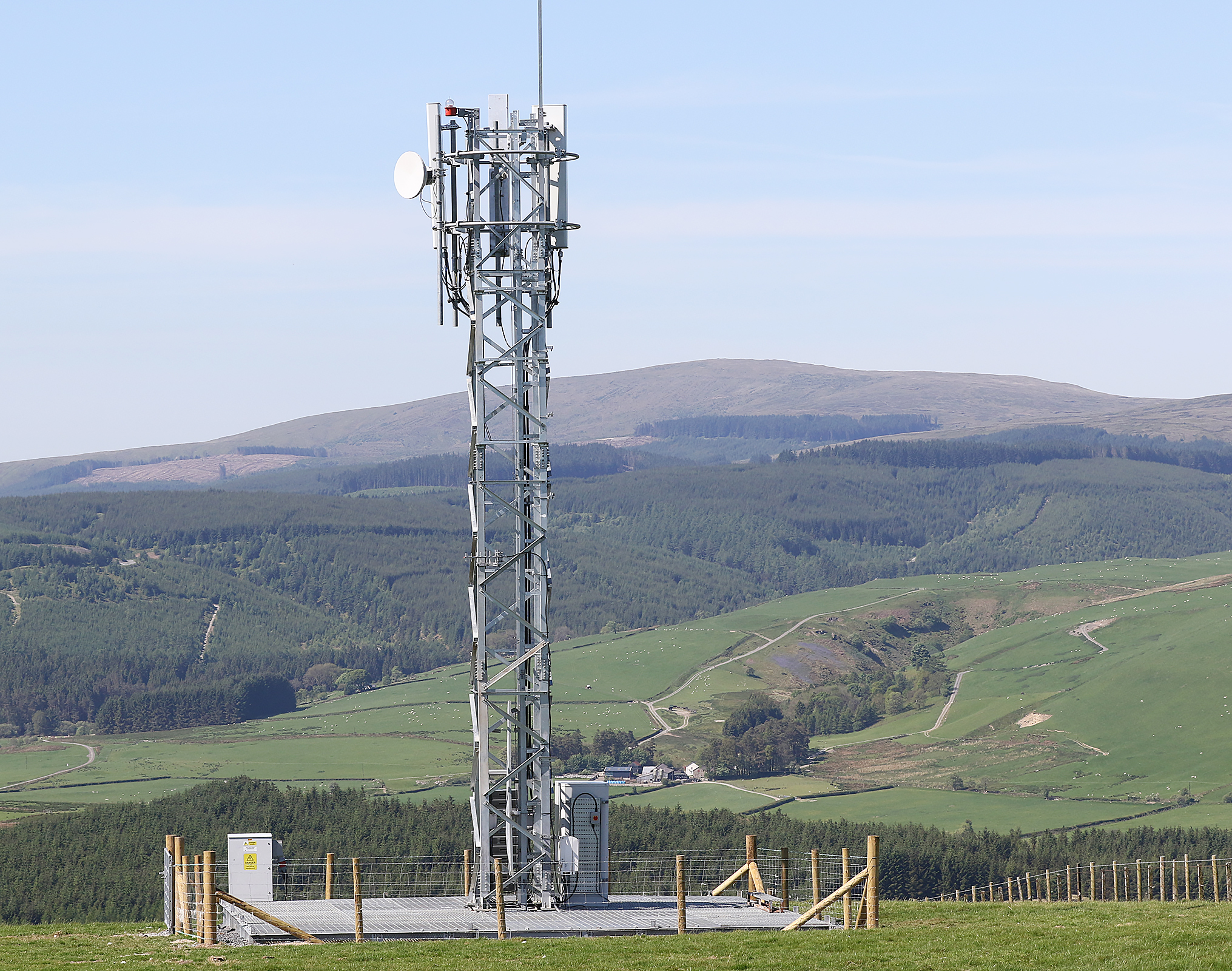The UK communication’s regulator Ofcom has published its decision about the 5G statements made by conspiracy theorist David Icke and ITV’s Eamonn Holmes.
Ofcom said earlier this month it would investigate ITV’s This Morning presenter Eamonn Holmes “as a priority”, after he cast doubts on media reports that debunk the false rumour that 5G causes Coronavirus.
Ofcom also said at the time it would also investigate TV channel London Live’s interview with conspiracy theorist David Icke, which was aired live on YouTube.

Staylittle 4G Mast feature
Picture by Phil Blagg
PB201-2017
David Icke
And now the UK watchdog has published its decision on both men and their comments.
Ofcom imposed a “sanction on ESTV after an interview with David Icke on its local television channel London Live included potentially harmful content about the Coronavirus pandemic.”
London Live is said to be owned by the Russian businessman Evgeny Lebedev, who also owns the Evening Standard and Independent newspapers.
“Our investigation found David Icke expressed views which had the potential to cause significant harm to viewers in London during the pandemic,” Ofcom stated. “We were particularly concerned by his comments casting doubt on the motives behind official health advice to protect the public from the virus.”
“These claims went largely unchallenged during the 80-minute interview and were made without the support of any scientific or other evidence,” it said, but added that Icke had a right to hold and express these views, but “they risked causing significant harm to viewers who may have been particularly vulnerable at the time of broadcast.”
Ofcom said that it is “considering whether to impose any further sanction,” on the station.
Eamonn Holmes
Ofcom also turned its attention to ITV’s This Morning presenter Eamonn Holmes, after his comments triggered over 400 complaints.
Holmes reportedly made his original remarks in a segment with the programme’s consumer editor Alice Beer, who dismissed the 5G theory as “not true and it’s incredibly stupid”.
“I totally agree with everything you are saying but what I don’t accept is mainstream media immediately slapping that down as not true when they don’t know it’s not true,” Holmes responded.
“No-one should attack or damage or do anything like that, but it’s very easy to say it is not true because it suits the state narrative,” he added. “That’s all I would say, as someone with an inquiring mind.”
He later issued a half hearted retraction.
“However many people are rightly concerned and are looking for answers and that’s simply what I was trying to do, to impart yesterday,” Holmes said in a statement the following day.
“But for the avoidance of any doubt I want to make it completely clear there’s no scientific evidence to substantiate any of those 5G theories. I hope that clears that up,” he said.
The regulator found that:
“In our view, Eamonn Holmes’ ambiguous comments were ill-judged and risked undermining viewers’ trust in advice from public authorities and scientific evidence,” said Ofcom. “His statements were also highly sensitive in view of the recent attacks on mobile phone masts in the UK, caused by conspiracy theories linking 5G technology and the virus.”
“We have taken into account the context provided by Alice Beer, This Morning’s Consumer Editor, who strongly rejected theories linking Covid-19 to 5G earlier in this programme; the prominent caption which rooted the discussion in ‘fake news’ about Covid-19; and an on-air statement broadcast by Eamonn Holmes the following day,” the regulator said. “In view of these factors, we have issued guidance to ITV and its presenters.”
Masts attacked
But the intervention of ill-informed celebrities wading in on the subject, has unfortunately not helped matters.
At least 20 mobile phone masts across the UK were torched or otherwise vandalised earlier in the month. The damaged mobile phones masts were reportedly clustered mostly around Liverpool and the West Midlands.
Then there was a surge in attacks on mobile phone towers or masts over the Easter weekend, with a further 20 suspected arson cases being reported.
Vodafone UK’s chief executive Nick Jeffery revealed that one of the attacked towers provided mobile connectivity to the Nightingale hospital in Birmingham, denying family the ability to say their goodbyes remotely to loved ones.
BT’s chief executive, Philip Jansen, who himself was struck down with Coronvirus, pleaded for the “mindless idiots who truly believe that 5G and Covid-19 are linked” to stop their attacks.
Jansen said that BT has seen telephone poles wrapped in barbed wire to stop its engineers doing their job, even though they are fixed-line (landline) cables and nothing to do with the mobile network.
He also revealed that 39 BT engineers had been verbally or physically assaulted – including threats to kill.
YouTube meanwhile has banned all conspiracy theory videos that falsely link 5G networks to the spread of Coronavirus.
Foolish celebrities
But the damage to mobile phone masts at a time like this, when a global pandemic has triggered heavy reliance on communication technology, beggars belief.
Matters have not been helped by foolish celebrities who have highlighted the false link between 5G and Coronavirus.
Last month an American singer/songwriter claimed 5G networks were to blame for the start of the Coronavirus pandemic. She subsequently retracted her claims.
Other celebrities have jumped on the bandwagon, including Amanda Holden who tweeted a link to an anti-5G petition to her almost 2 million followers.
Boxer Amir Khan and actor Woody Harrelson have published similar claims.
Last month experts at the International Commission on Non‐Ionizing Radiation Protection (ICNIRP) declared that 5G was safe for human health.
ICNIRP is based in Germany, and it is the international body in charge of setting limits on exposure to radiation.
Earlier this year the UK communications regulator Ofcom carried out safety tests in the UK of 5G base stations and found that there is no danger to the public posed by electromagnetic energy (EME) levels.
How much do you know about UK mobile operators? Try our quiz!





